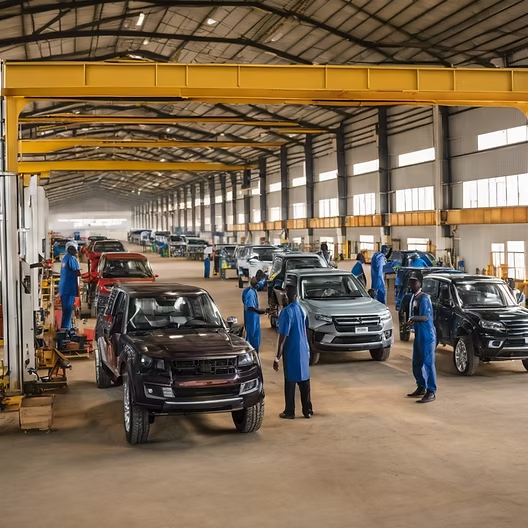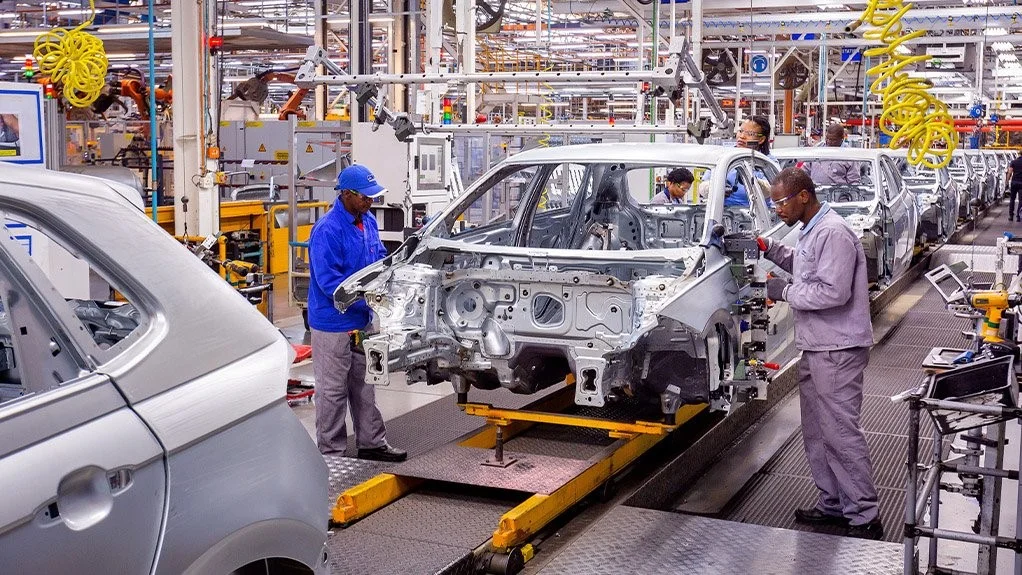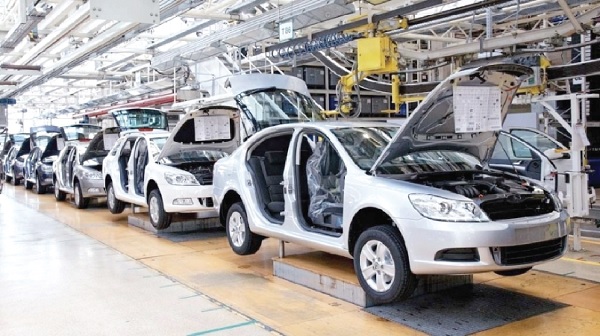As Ghana gears up for the second edition of the Ghana Automotive Summit on June 3, 2025, industry stakeholders are turning their focus to the country’s broader Ghana Automotive Strategy—a blueprint that has so far promised much but delivered less than expected.
IMANI Africa, a leading policy think tank, has weighed in with a sharp analysis of what needs to be done for the strategy to succeed, urging the government to take concrete steps to resolve key bottlenecks stifling progress in the sector.
The summit, themed “Towards the Future of Mobility,” will be held in Accra and aims to highlight recent strides made by Ghana’s fledgling automotive industry.
From the establishment of local assembly plants to the gradual introduction of new vehicle brands and models, the event offers an opportunity to showcase achievements and discuss the road ahead—particularly in job creation through industrialization.
However, IMANI Africa cautioned that these gains risk stagnating without deliberate reforms.
While the Ghana Automotive Strategy enjoys support through policies like the Ghana Automotive Development Policy (GADP) and the Ghana Manufacturing Development Programme (GMDP), real growth is being held back by a lack of demand, unclear policies, and stiff competition from the thriving used vehicle import market.
“Ghana’s automotive industrialization strategy is supported by the Ghana Automotive Development Policy (GADP), under the Ghana Manufacturing Development Programme (GMDP). These policies were designed to attract assemblers and build a foundation for a competitive local industry.”
IMANI Africa
Introduced under the Customs (Amendment) Act, 2020, the ban on importing salvaged vehicles and cars over 10 years old was a key pillar of this strategy.
The intention was to reduce the influx of cheap, secondhand vehicles and create market space for new, locally assembled ones.
However, the enforcement of this law has been inconsistent, drawing pushback from used car importers and spare parts dealers, particularly in hubs like Abossey Okai and Suame Magazine.
According to Dr. Issaka Lawerh Tetteh, an automotive expert, affordability remains the most significant constraint.
While assembly plants are operational, many Ghanaians simply cannot afford the vehicles produced. “Many Ghanaians cannot afford new locally assembled cars,” he emphasized. Asset-based vehicle financing and tax incentives were intended to close this gap, but have yet to make a meaningful impact.

The situation is further complicated by President Mahama’s pledge to repeal the import ban, a move that IMANI warned could send mixed signals to investors and industry players.
Removing restrictions without adequate safeguards could destabilize an already fragile local assembly sector that depends on protective regulations to survive.
“Used vehicle imports — typically older, cheaper, and more accessible — dominate the Ghanaian car market, accounting for over 70% of annual car imports.”
IMANI Africa
The think tank emphasized that unless regulations are introduced to discourage the import of unsafe or high-emission vehicles, local assemblers will remain uncompetitive.
IMANI Outlines Fixes for Ghana Auto Plan
Furthermore, IMANI Africa argued that for the Ghana Automotive Strategy to truly work, certain strategic adjustments must be prioritized. First and foremost is stimulating domestic demand.
Without a robust market, assembly plants will continue to operate below capacity. Expanding access to vehicle financing—especially for locally assembled models—could help translate consumer interest into purchases.
Equally important is policy clarity and consistency. The think tank stressed that manufacturers need assurance that regulatory incentives will remain stable.

Sudden changes in legislation or enforcement, such as those surrounding the Customs (Amendment) Act, can undermine investor confidence and stall progress.
Moreover, IMANI highlighted a long-standing gap in technical skills as another barrier to long-term success.
While assembling vehicles is a start, building a sustainable automotive industry requires a skilled workforce—including technicians, engineers, and parts manufacturers.
Investing in vocational training and automotive engineering programs, they argue, is essential if Ghana is to avoid becoming a mere assembly hub with minimal local value addition.
“Another critical area is skills development. As echoed by industry leaders, the future of this sector hinges not just on assembly lines but on the ability to grow a pipeline of technicians, engineers, and parts manufacturers.”
IMANI Africa

To further boost the sector, the think tank suggested the government should lead by example through public procurement of locally assembled vehicles.
This would not only validate the policy but also generate the volume necessary to make production lines viable in the long term.
Finally, IMANI noted that while the upcoming Ghana Automotive Summit is an opportunity to celebrate progress, it must also be a turning point toward bold, evidence-based reforms.
“The sector’s success will depend not just on the presence of multinational assemblers but on resolving core structural challenges: demand, affordability, policy clarity, and industrial depth.”
IMANI Africa
Without these reforms, IMANI Africa warned, the summit could become yet another ceremonial event—heavy on rhetoric but light on results.
READ ALSO: Fitch Predicts 5% Policy Rate Cut by 2026 as Ghana’s Economy Stabilizes



















